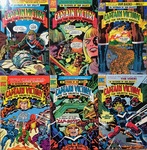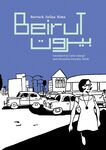
OUT OF STOCK!
Now in softcover
Here's what the US publisher, New Directions has to say:
Lispector said of the novel, ‘I was chasing after something and there was nobody to tell me what it was’… The Besieged City arrives to us today as an artifact and a time capsule, a bittersweet revelation.
— The Paris ReviewNow in paperback, The Besieged City—Clarice Lispector’s electrifying third novel—tells of a shallow girl becoming a desirable but highly materialistic woman in a rough-and-ready town
Included in the Available Titles catalog The Besieged City Fiction by Clarice LispectorTranslated from Portuguese by Johnny Lorenz
Edited by Benjamin Moser
Rich with visions, miraculous horses, and linguistic ecstasy, The Besieged City stars Lucrécia. Clarice Lispector’s heroine is a materialistic girl free of the burden of thought: “Behold, behold, all of her, terribly physical, one of the objects.”
“The object—the thing,” Lispector once remarked, “always fascinated me and in a certain sense destroyed me. In my book The Besieged City I speak indirectly about the mystery of the thing. The thing is a specialized and immobilized animal.
Seven decades after its original publication, Clarice Lispector’s third novel—the story of a girl and the city her gaze reveals—is in English at last.
Lucrécia Neves is ready to marry.
Her suitors—soldierly Felipe, pensive Perseu, dependable Mateus—are attracted to her tawdry not-quite-beauty, which is of a piece with São Geraldo, the rough-and-ready township she inhabits.
Civilization is on its way to this place, where wild horses still roam. As Lucrécia is tamed by marriage, São Geraldo gradually expels its horses; and as the town strives for the highest attainment it can conceive—a viaduct—it takes on the progressively more metropolitan manners that Lucrécia, with her vulgar ambitions, desires too. Yet it is precisely through this woman’s superficiality—her identification with the porcelain knickknacks in her mother’s parlor—that Clarice Lispector creates a profound and enigmatic meditation on “the mystery of the thing.”
Written in Europe shortly after Clarice Lispector’s own marriage, The Besieged City is a proving ground for the intricate language and the radical ideas that characterize one of her century’s greatest writers—and an ironic ode to the magnetism of the material.













